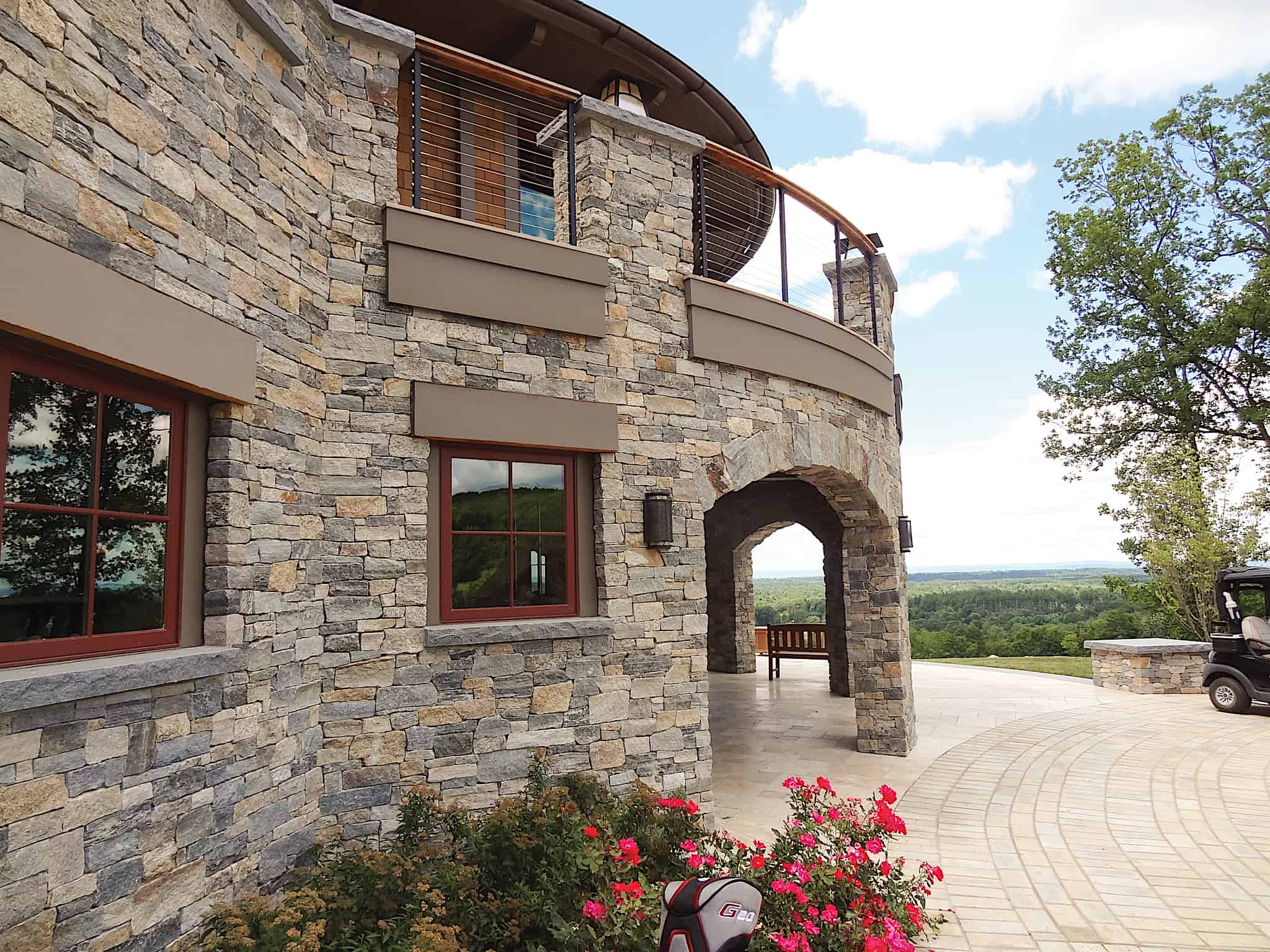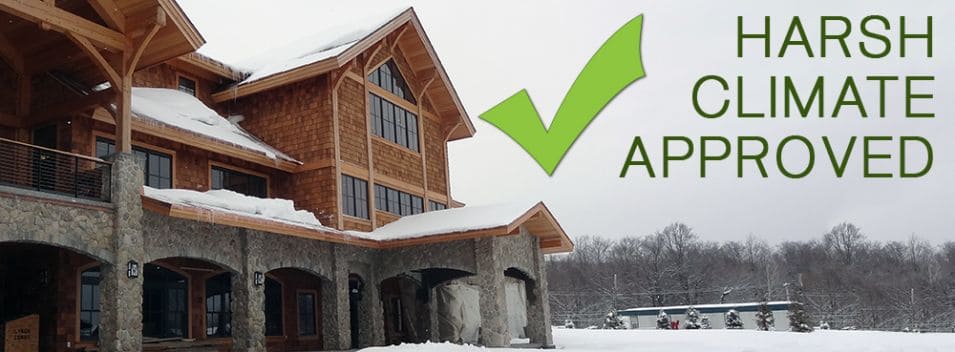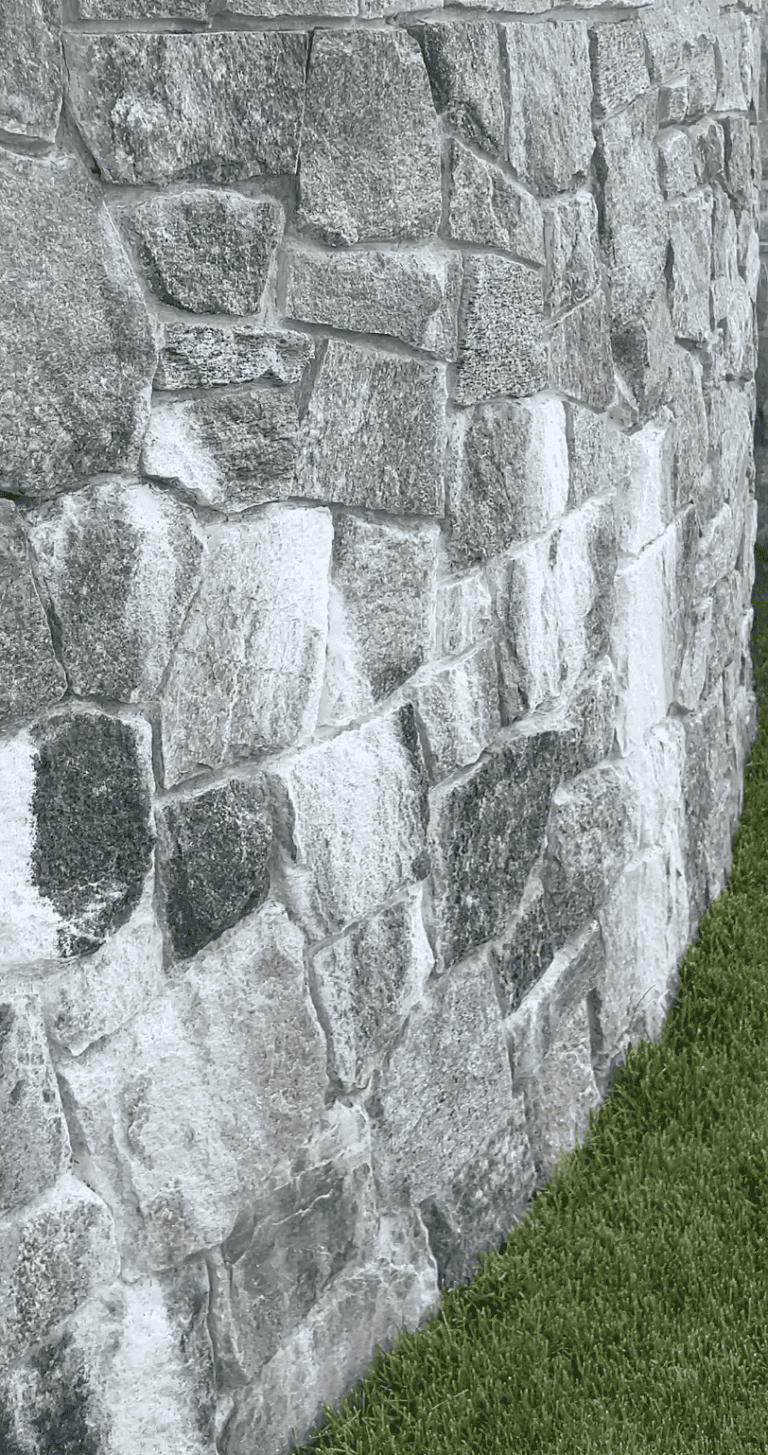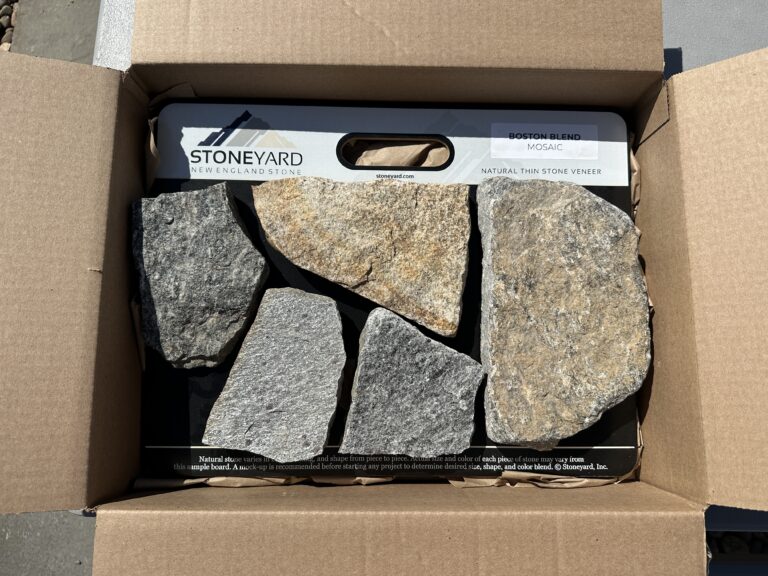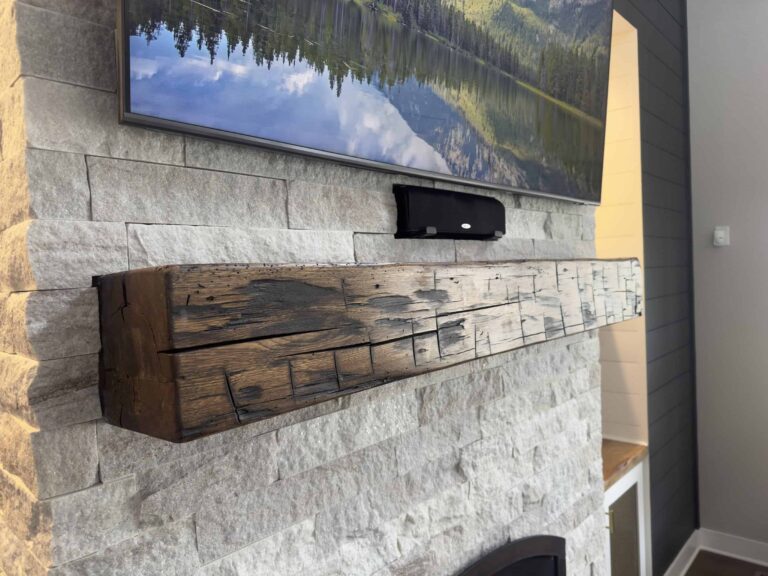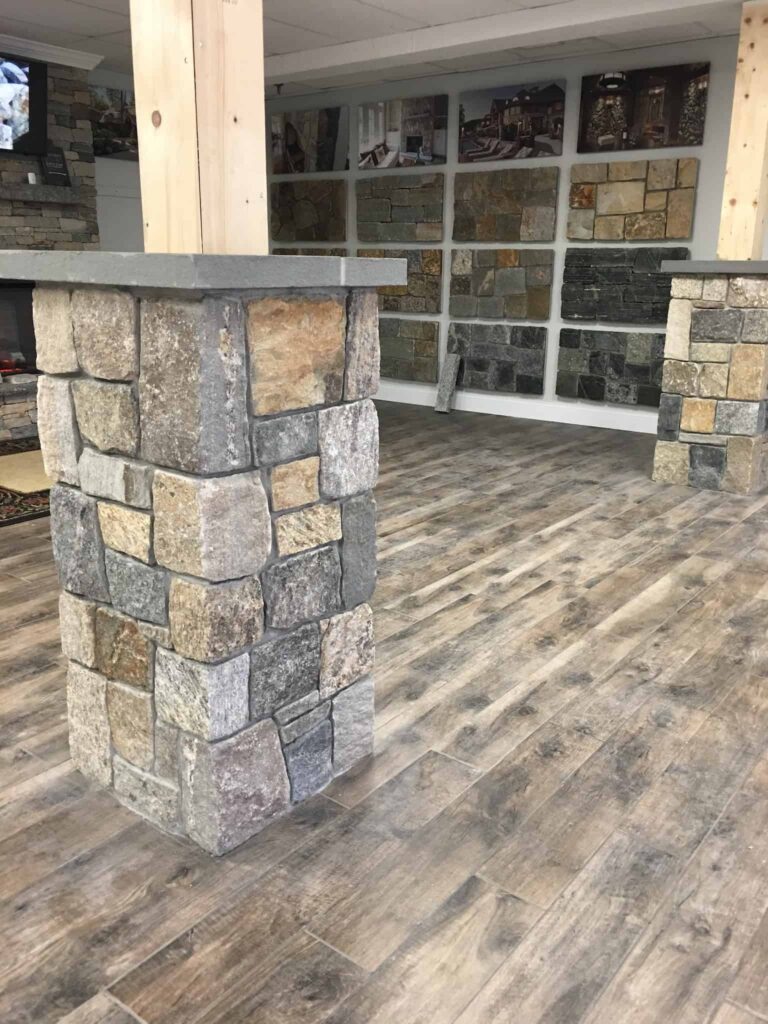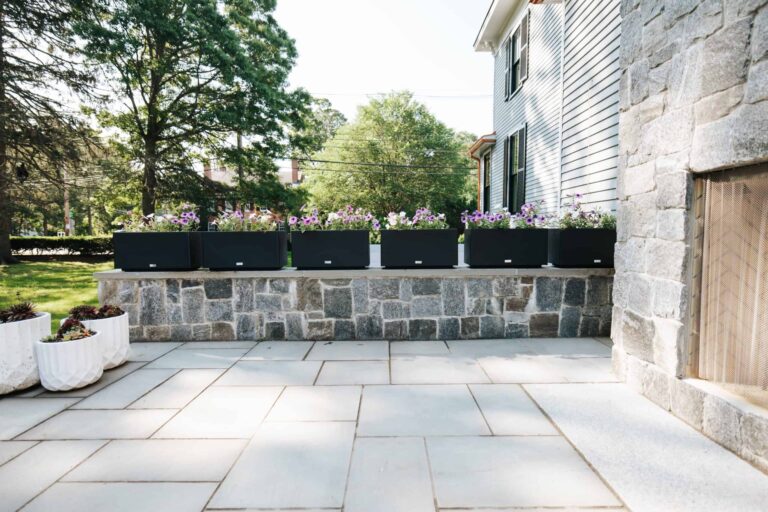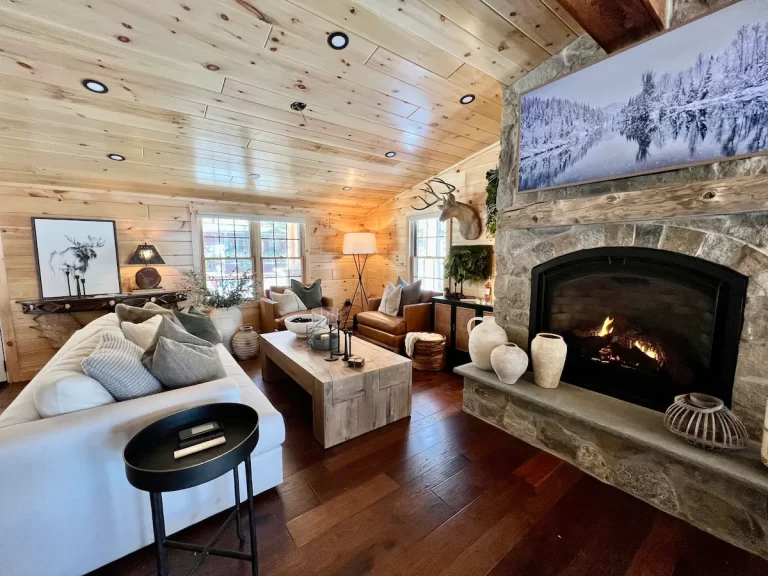Reimagine Any Exterior with Stunning Stone Cladding Options
Stone Cladding
Stone cladding is a versatile and visually stunning design element that can transform the exterior of any home or building. With its unique combination of aesthetic appeal, durability, and thermal insulation properties, natural stone wall cladding has become increasingly popular among mason contractors, architects, and those looking to build high-end homes.
In this comprehensive guide on stone cladding, we will explore the numerous benefits it offers as well as delve into various types of exterior house stones suitable for different applications. We will also discuss how certain stone materials are specifically designed to withstand harsh climates while maintaining their beauty and structural integrity.
Furthermore, we’ll compare natural stone with faux alternatives to help you make an informed decision when selecting the perfect material for your project. To round off our discussion, we’ll introduce a selection of reputable stone cladding brands to give you plenty of options for your project.
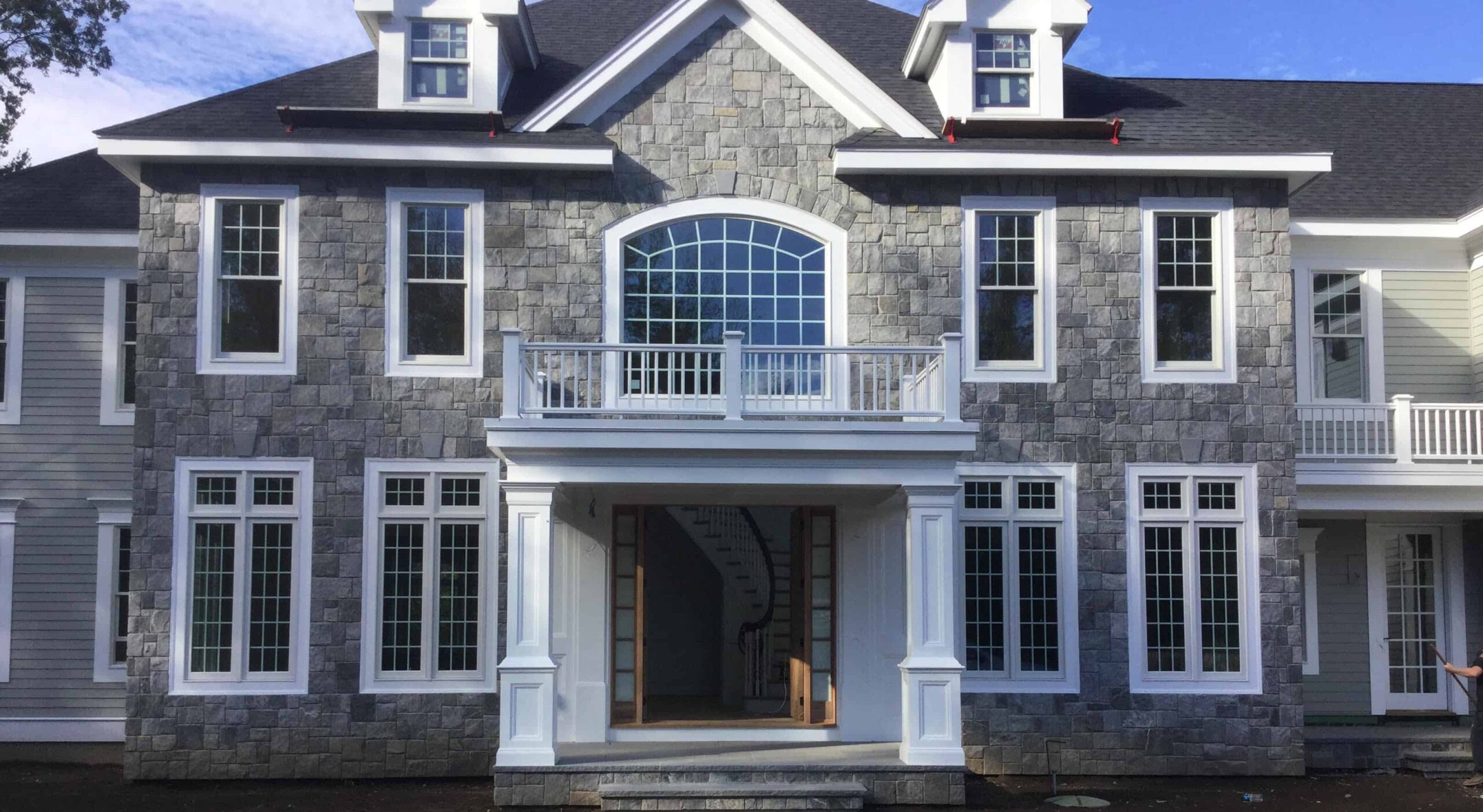
Benefits of Natural Stone Cladding
Natural stone cladding is a popular choice for both exterior and interior walls, offering numerous advantages to homeowners, architects, and mason contractors.
Durability and Longevity
Stone can withstand harsh weather conditions without deteriorating or losing its visual appeal, making it an ideal material for harsh climate approved stone cladding.
Maintenance-Free
Natural stone requires minimal maintenance compared to other materials like wood or vinyl siding.
Eco-Friendly Material
Using natural stones in construction contributes positively to the environment because they are sustainable resources that do not emit harmful chemicals during production or installation processes.
Aesthetic Appeal & Versatility
- Variety: There are various types of exterior house stones available on the market today with different colors, textures, and shapes – giving you endless design possibilities.
- Curb Appeal: The unique look offered by natural stone adds curb appeal which increases property value significantly over time.
For a long-term, cost-effective solution that will add value to your property while remaining environmentally friendly and attractive, natural stone cladding is an ideal choice.
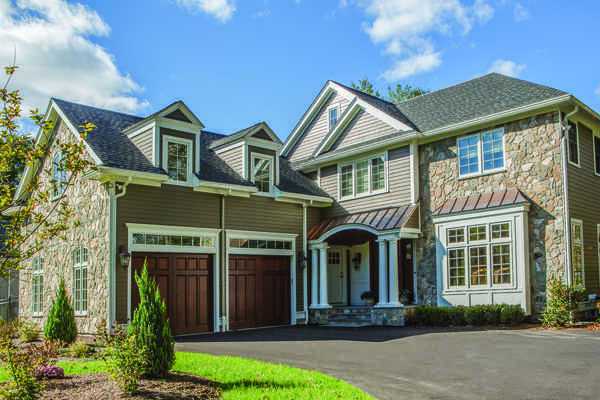
Types of Exterior House Stone
Selecting the ideal exterior house stone can be a challenge, but we’ve got you covered with some popular choices like natural stone veneer for timeless appeal and superior strength such as granite, limestone, sandstone, slate and quartzite.
Natural Stone Veneer
Natural stone veneer offers timeless appeal and unmatched durability with options like granite, limestone, sandstone, slate, and quartzite.
Cultured Stone
Cultured Stone is lightweight, easy to install, and mimics the appearance of natural stones closely.
Eldorado Stone
Eldorado Stone offers a wide range of faux stone, including rustic ledgestones, elegant ashlar patterns, and rugged fieldstones, all crafted using molds taken from actual rocks ensuring authentic textures.
Factors to Consider
- Style and Design: Choose a stone type that complements your home’s architectural style.
- Durability: Opt for materials that can withstand harsh weather conditions.
- Maintenance Requirements: Consider how much time and effort you’re willing to invest in maintaining your cladding.
- Budget Constraints: Determine your budget before making a decision on which material best suits your needs.
By taking into account the various exterior house stones available and their benefits and drawbacks, you can make a wise decision for your project that will last.
Harsh Climate Approved Stone Cladding
Choosing stone cladding for extreme weather conditions requires durable and resistant materials like New England Thin Stone Veneer that can withstand moisture, temperature fluctuations, and UV rays.
Durability and Resistance
Due to their low water absorption and resistance to freeze-thaw cycles, natural stones are ideal for harsh climates as they provide superior density compared to synthetic alternatives.
Thermal Performance
For extreme temperatures, natural stones offer good insulation values compared to synthetic alternatives like faux stone veneers.
Cold Climate Recommendations:
- Granite: Known for its strength and durability under freezing temperatures.
- Sandstone: Offers excellent insulation properties while maintaining its structural integrity during cold seasons.
- Limestone: Dense limestone varieties provide good thermal performance in colder environments.
Hot Climate Recommendations:
- Slate: Provides natural heat resistance due to its dense structure which helps keep interiors cool during hot summers.
- Travertine: A porous stone that allows for natural air circulation, reducing heat buildup within the walls and providing a comfortable indoor environment during warm weather conditions.
Maintenance Requirements
Regular maintenance is crucial to ensure the longevity of your stone cladding, and natural stones generally require less upkeep than faux alternatives.
However, some types may need periodic sealing or cleaning treatments to protect against moisture infiltration or staining from airborne pollutants.
Consult with your supplier or contractor about specific maintenance requirements for your chosen material.
Choose high-quality materials like those offered by Stoneyard.com for beautiful and long-lasting exterior walls in any climate condition.
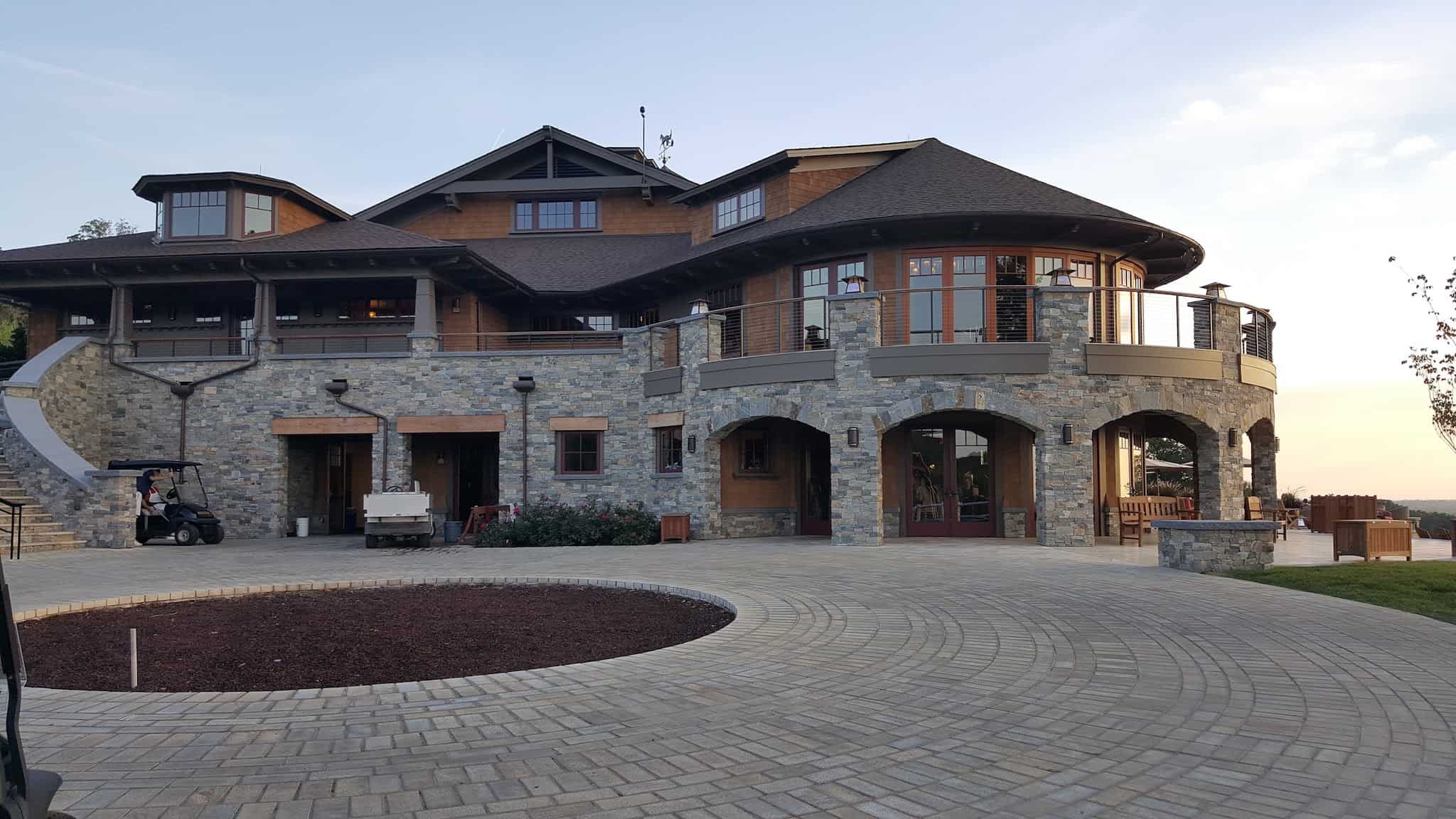
Natural Stone vs Faux Stone
Choosing between natural stone and faux stone for your home’s cladding can be tough, but understanding the differences can help.
Natural Stone Cladding
Natural stone cladding is durable, unique, and eco-friendly, but it can be pricey.
- Durable: Natural stones can withstand harsh weather conditions and last a lifetime with proper maintenance.
- Unique: Each piece of natural stone has its own distinct pattern and color variation which adds character to your home’s exterior.
- Eco-friendly: Since it’s a naturally occurring material, there’s no need for synthetic materials or chemicals in its production process.
Faux Stone Cladding
Faux stone cladding is affordable, lightweight, and comes in a variety of styles, but it may not be as durable as natural stone and lacks authenticity.
- Affordable: Faux stone cladding is generally more cost-effective than natural stone, making it a popular choice for budget-conscious homeowners.
- Lightweight: Manufactured stones are lighter in weight compared to their natural counterparts, which can simplify installation and reduce structural support requirements.
- Variety of styles: With faux stone, you have access to a wide range of colors and textures that may not be available with natural stones.
Ultimately, the decision between natural stone and faux stone comes down to personal preference and budget.
Popular Brands of Stone Cladding
Upgrade your home’s exterior with stone cladding from top brands like Eldorado Stone, Cultured Stone, Coronado Stone, and Stoneyard.com.
Stoneyard.com:
Stoneyard.com specializes in natural stone veneer siding sourced from New England quarries, with a variety of styles like thin stone veneers, mosaic patterns, ledgestones, and more.
Compare each option based on factors like product quality, design variety, pricing structure, and customer reviews to find the best match for your specific requirements while ensuring excellent value for money.
Eldorado Stone:
Eldorado Stone offers high-quality manufactured stone products that mimic natural stones with precision and come in various styles like stacked stones, brick veneers, and ledge stones.
Cultured Stone:
Cultured Stone has been producing quality manufactured stone veneer since 1962, with diverse styles like cobblestones, fieldstones, ledgestones, and more.
Coronado Stone:
Coronado Stone offers faux-stone siding options inspired by nature’s beauty, with over 50 years of experience in the industry.
FAQs in Relation to Stone Cladding
Is Stone Cladding Worth It?
Definitely. Stone cladding is a fantastic way to add character and durability to your plain walls, with a wide variety of natural stone wall cladding options available.
What Are the Benefits of Stone Cladding?
Stone cladding offers excellent thermal insulation, weather resistance, and low maintenance requirements, making it a smart investment for any property.
Are There Any Downsides to Stone Cladding?
While stone cladding can be more expensive to install than other siding materials, choosing high-quality products from reputable brands like Stoneyard, Eldorado Stone, or Cultured Stone can minimize any potential issues.
What Are the Best Stones for Cladding?
- Granite, limestone, and sandstone are all excellent natural stone options for wall cladding.
- Faux stones made from concrete or polyurethane can also be a great choice.
- Coronado Stone Products, Cultured Stone veneers, and Eldorado Stone veneers are all top-quality brands to consider.
Upgrade your home’s exterior with natural stone cladding – it’s durable, beautiful, and timeless, making it a popular choice for high-end homes.
- Choose from a variety of natural stone options, including granite, limestone, and sandstone.
- Harsh climate? No problem – there are natural stone cladding options that are approved for extreme weather conditions.
- Don’t be fooled by faux stone – natural stone cladding offers a more authentic look and feel.
Whether you’re an architect, mason contractor, or simply building your dream home, natural stone cladding is a smart choice for enhancing your home’s curb appeal.
